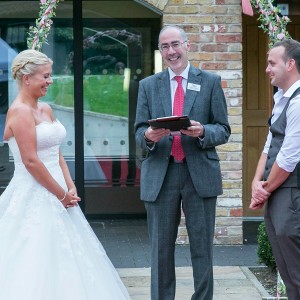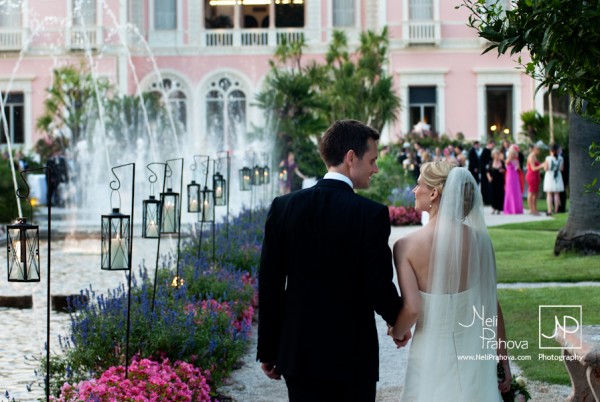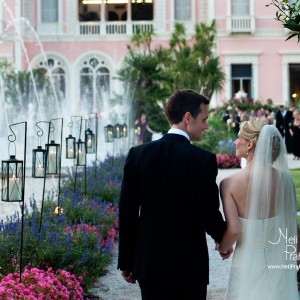
by Michael | Dec 15, 2015 | Blog
Is there any freedom to choose your wedding ceremony?
What if a full religious wedding doesn’t rock your boat?
The non-religious ceremony offered by the Register Office will tick some people’s boxes, but it is standardised. There’s nothing personal or special about it.
What if you could go to the Register Office in the morning in your jeans, with a couple of witnesses, to sign the marriage certificate – and then enjoy a wonderful, joyous ceremony in the afternoon or the next day with all your guests?
Nowadays, that is a possibility.
And your celebrant can really help you.
As long as the legal bit is still carried out, there’s nothing to stop you holding the ceremony you actually want – at the venue you want.
The Ceremony
One of the beauties about a celebrant-led wedding is that you will receive help (as much or as little as you want!) to build your own ceremony. So if you do want a religious component (and you are welcome to draw from various cultural sources), you can put it in; if you want spiritual elements, that’s absolutely possible; choosing your favourite poems and readings is an option that can contribute such a lot. Usually, you’ll be able to please yourselves AND keep your parents happy!
As well as the readings, you decide on the music. You also decide on the choreography (who walks or stands where), readers, the wording, and recital of the Vows. Your celebrant will be pleased to advise and make helpful suggestions. (This process of getting the ‘script’ word-perfect, usually conducted by e-mail, may take a number of e-mails.)
Ritual
You will be able to incorporate any rituals and little touches that would not otherwise have been possible, if you so wish. For example, why not drink together from a loving cup, light a Unity Candle or celebrate a handfasting (an ancient Celtic betrothal ritual)?
Conclusion
In short, this is YOUR day, and your celebrant, who will of course conduct the ceremony for you, will do everything to ensure that the day is unforgettable, meaningful and what YOU want.
Unlike previous generations, you have the freedom to choose every single thing about your ceremony, so that it fits in totally with your personal beliefs and wishes. Why shouldn’t your big day be exactly what you want it to be?
Let your civil celebrant work with you to ensure you achieve that rare goal of turning your dreams into reality.

by Michael | Dec 10, 2015 | Blog
A wedding jigsaw seems an apt description of the process. Putting a wedding together is all about how the various elements meld.
Naturally, there are many factors that make up a successful wedding. As a civil celebrant, my specialism lies in the ceremony itself, but I get to see and experience other aspects too. So here are a few rather random – but no less valuable – thoughts that may help to make a difference to your big day.
The Bride’s appearance
As a middle-aged male, I don’t pretend to be an expert in this particular field. However, everybody seems to focus on the dress, make-up and hair. One area that tends to be overlooked is the skin. Without radiant skin, the cosmetics won’t be effective.
As for the dress, I’d only say that it should fit the occasion (ie stylish, if it’s a formal occasion).
I’ll stand aside now, and let others give their (probably much sager) opinions!
Flowers
I would always advise hiring a professional. Go with their advice about seasonal displays. They will also look after the flowers – wilting flowers at a ceremony are so disappointing.
Photography
Whether you want the occasion recorded by video or still camera, you can save money by asking a friend to do the job. Just bear in mind that there are down sides to this. Firstly, your friend may well miss out on much of the celebrating and socialising. Then, if he is not a professional, he might stuff up, and there are no second chances at weddings! And, of course, if you don’t like his work, a long-standing friendship could be put at risk.
I think a professional is advisable, though a major added expense. Provided you choose wisely, the outlay will feel justified, once you see the results.

Celebrant
You need someone who knows what they are doing, that you can relate to and trust. Again, I have often written about choosing a good celebrant, but the importance of doing your homework can’t be overestimated. After all, you want the ceremony to be perfect. I would be more than willing to advise you further.
The Reception
Table plans can be the devil to draw up, but are actually very welcome for guests. A big do can be quite disorientating and a little direction will not go amiss. If you mix people up a bit (judiciously!), they can have a lovely time making new acquaintances. Resist any mischievous streak you may have and try not to settle old scores!)
Children
I have recently written about children at weddings. If you invite them, make sure they are occupied as much as possible. If they can participate in the ceremony, so much the better. At the reception, give them their own table (in the same room), with appropriate food and activities.
A miscellany, maybe, but I hope this was helpful and gave you a few things to think about when fitting the pieces together.
Featured image source: belleamour.co.uk
by Michael | Dec 9, 2015 | Blog
They say that working with children is one of the riskiest things performers can do, as you can never predict children’s behaviour. So would you welcome children at ceremonies?
As a civil celebrant, I recognise that this is one of life’s great Unpredictables! Will the little darlings behave like angels? Or implacably demand attention just at the wrong moment?
So what do you do at a wedding or vow renewal etc.?
Solutions
One option is to make the event child-free, which is absolutely fine, so long as you have made this clear on the invitations.
However, not everybody wants – or is able – to do this. So how can you reduce the risk of your ceremony being taken over by over-tired little Orville or attention-seeking Annette?
Here are some ideas – obviously, these depend on age as well as personality.
If you can give children jobs – and show due appreciation afterwards – they will feel valued and will almost certainly aim to please.
Possible jobs
At the ceremony
Children aged between 4 and 8 or so can serve as flower girls (or boys). One tip here is to make sure that their clothes are comfortable, so they do not become fidgety and, indeed, grumpy.
Older children (between, say, 8 and 14) can be pages or ladies-in-waiting. They may do errands (such as fetching a glass of water or passing messages) and will enjoy the responsibility.
Gift-attendants will suit 12-14-year-olds (assuming the event is big enough for this to be relevant). The children can simply watch over the gifts or possibly tag them with the name of the giver.
You may want a guest-book attendant. Provided that the child is reasonably outgoing, he or she can invite all the guests to sign the guest book. This will probably suit a friendly child over the age of about 14.
Ushers are always useful. Older children may do this best, but they can even have a little train of young ushers to look after. It’s nice if the youngsters can take adult guests by the hand and lead them to their seat!
At the Reception
Food and Drink
Work with the caterer to ensure there is kid-friendly fare out there. I’m personally all for a healthy diet, but on the odd occasion I think we can turn a blind eye. So bring on the chips, mini-burgers, cheese pies, spaghetti hoops, jam or peanut butter sandwiches, Pringles and the like! Provide juice (and if you serve it in goblet-like cups, the children can join in the toasting) and also still water.
Activities
Colouring books, sticker books, box decorating, fabric painting are usually popular with children. If you have a separate room for them, then they might be able to watch a video or even play games like bingo or musical chairs. They may need activity directors to organize these activities (pre-teens are often excellent at this).
Bubble-blowing is another popular option.
Finally, don’t forget to offer, if you can, a chill-out space.
Of course, you may be able to enlist the help of a parent or adult friend to supervise what goes on, or hire an entertainer such as a magician, but you might be surprised how successfully youngsters may run the show. And they come somewhat cheaper!
At any rate, the children will appreciate that they have been included in the adults’ celebration in such a way that they can feel useful and really enjoy themselves, and their behaviour should reflect this.
So everyone’s a winner!
by Michael | Dec 8, 2015 | Blog
Organising a wedding together with a celebrant means your ‘script’ can be exactly what you want. Marriage vows are normally an integral part of the ceremony. But what do you say?
You don’t have to be original (you can use somebody else’s vows or enlist the help of your civil celebrant), but heartfelt vows make such a difference to the sincerity and beauty of the occasion.
So if you can write your own marriage vows, they may well turn out to be personal, moving and special for everyone.
But DON’T stuff up!
First things first
1. Make sure you and your partner BOTH want to do this.
2. Allow loads of time to write – and rewrite – the vows.
3. Decide on a few general things to say (worry about the detail later) – just have clear in your head what it is important.
4. Will your vows be serious, humorous, deep, spiritual, religious, or a combination?
5. Once you’ve got a few sentences down (and sixty seconds per person is quite long enough!), see about reworking them so they look and sound good to you.
What content should you put in?
• You should probably express deep emotional love for your partner
• Was your first meeting ‘love at first sight’? If so, talk about it.
• When did you first realise you were in love?
• How has your life changed since you met your partner/fell in love?
• Talk about your plans and aspirations for your future life together – or growing old together
• Promise to stay together in the future, come what may
If you prefer, quote from an appropriate song, film or poem. Metaphor or simile may get your message across very well, but less embarrassingly!
Improving the draft
1. Leave your draft a day or two, then review it. A brutal friend may help!
2. Practise reading the vows (alone!) in front of a mirror – or with your partner.
You don’t need to learn your vows off by heart, either – you can read them off a card, or even repeat them after the celebrant, if you prefer.
To come up with a meaningful, original and affecting set of vows is not as difficult as you may think. The results will certainly be more than worth the effort!

by Michael | Dec 8, 2015 | Blog
Asking you to beware that destination wedding may sound a bit melodramatic, but don’t be put off. As my last blog ought to have suggested, I have nothing against a destination wedding! In fact, I spoke about how wonderful it can be, provided you have the right civil celebrant.
However, there can be a few other things to look out for, if the wedding is to be the success that you are dreaming of.
Guests
A lot of thought is going to have to go into deciding whom you invite. I can’t advise you on that, as it obviously has to be your decision, but you will need to weigh up who absolutely has to be there (it may be the best man, parents, or whoever) and how you get them there.
Depending on where you are holding the ceremony, you will have to think about other people’s budgets (unless you’re lucky enough to be able to treat them to flights and/or accommodation).

Venue
I suggest a few considerations here (remarks which might equally apply to non-destination wedding venues too).
- If you are having a theme, will the venue be suitable?
- Is the venue licensed for civil ceremonies (or will you actually be marrying in a register office before you depart, say)?
- Don’t forget to check if the area is big enough (yet not too big) for your party – and whether you will need to hire any equipment (audio, seating, cutlery, etc.)
- Is there an in-house wedding co-ordinator – and will she be there on the day?
- Can the catering arrangements all be sorted satisfactorily? Will vegetarian or gluten-free options be wanted – or even possible? Can there be a cake?
- Does your package include menus, place cards, centerpieces, etc.?
Accommodation
It is probably simpler, if you stay in the hotel where the ceremony will take place. If not, ensure you organise transportation well in advance. At all events, try and do your homework before booking.
If you have guests arriving after you, ensure they know how to reach the venue from the airport/port.
Make sure you check their requirements before booking them in for at least bed and breakfast.
Before the wedding
The last thing you want is to be ill on your wedding day. Therefore:
- Avoid over-indulging in alcohol, especially the day before the ceremony
- Be conservative about what and how much you eat, especially on the eve of the wedding
- Don’t spend too long in the sun
- Ensure you keep well-hydrated (with bottled, still water, preferably)
A Wedding Blessing?
What about those people you didn’t invite or who couldn’t join you in your exotic location?
A lovely possibility would be to hire a room in a restaurant or hotel near your home back in the UK, and hold a bespoke wedding blessing ceremony just for your friends and family. A civil celebrant could compile and conduct a beautiful, meaningful short service for you.
Your guests would love having the chance to witness and participate in what is (to all intents and purposes) your marriage, and would appreciate the photo-opportunities. Knowing the legal bit is long over and done with, you would simply relax and enjoy the whole event.
That way, everybody can be happy!

by Michael | Dec 7, 2015 | Blog
You may have decided on sunnier climes than Britain’s for your wedding. Well, I can’t blame you. A destination wedding is understandably popular nowadays.
Choices
You may decide that you don’t want much or even anything in the way of religious elements. You may want some personal input into your ceremony. You may well want something more meaningful than a registry office wedding.
Then a civil celebrant-led wedding could be for you.

What exactly would be involved?
You’d need someone who can advise you about the legal side.
You’d need someone who can tailor-make the ceremony for you. If you want ritual, you should have it. If you want spiritual elements, then likewise. If you want special music, why on earth not? And why not choose the participants?
A good celebrant will work with you, encouraging you to make the very best choices for your day.
What marks out a good celebrant?
You should check out the celebrant’s website. You may get a feel for his/her personality, especially if there’s a video. As you’ll be working with them quite a bit before the ceremony and certainly on the day, you’ll want to feel comfortable with them.
Don’t commit before having a chat face-to-face, on Skype, or by phone.
Religious or not?
Your celebrant should customise the ceremony so that you can have as much or as little religious component as you choose. There’s nothing to stop you from incorporating elements from different faiths or backgrounds, if you so choose. You should be able to select special readings or music. A good celebrant will be happy to incorporate these and to offer advice. Dress is also down to you – and that can include the celebrant’s attire.
Other important points
A good celebrant must be prepared to co-operate with the photographer/videographer. After all, you are going to want to have the best possible mementos of the occasion.
Another important element is presentation. You therefore need a celebrant who has excellent presentation skills. There may be a PA, but it helps if the celebrant is clearly-spoken and can project their voice. A sense of humour may be invaluable too!
It pays to choose your celebrant with care. Don’t necessarily use a friend, although being able to relate to the celebrant is paramount. Do ensure, as far as you are able, that you go with a competent person, with a pleasant manner, whom you believe will do a professional job.
These remarks will equally apply to choosing a civil celebrant for a British as well as a destination wedding, of course. I plan to make a few remarks about destinations and things to beware of in a future blog, so please watch this space!






